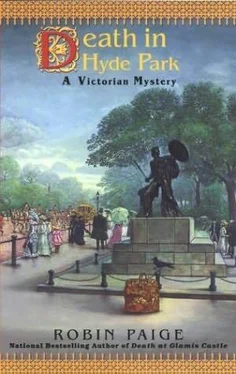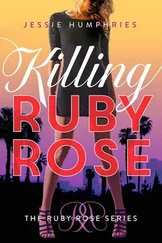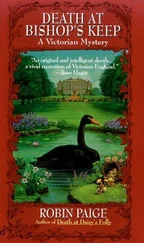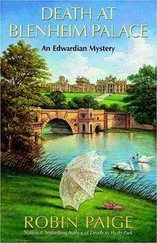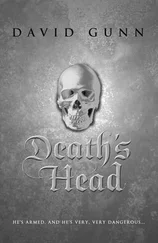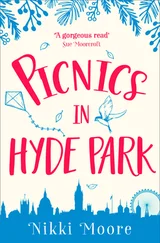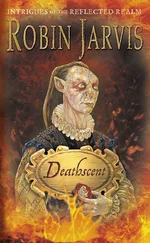Robin Paige - Death in Hyde Park
Здесь есть возможность читать онлайн «Robin Paige - Death in Hyde Park» весь текст электронной книги совершенно бесплатно (целиком полную версию без сокращений). В некоторых случаях можно слушать аудио, скачать через торрент в формате fb2 и присутствует краткое содержание. Жанр: Классический детектив, на английском языке. Описание произведения, (предисловие) а так же отзывы посетителей доступны на портале библиотеки ЛибКат.
- Название:Death in Hyde Park
- Автор:
- Жанр:
- Год:неизвестен
- ISBN:нет данных
- Рейтинг книги:5 / 5. Голосов: 1
-
Избранное:Добавить в избранное
- Отзывы:
-
Ваша оценка:
- 100
- 1
- 2
- 3
- 4
- 5
Death in Hyde Park: краткое содержание, описание и аннотация
Предлагаем к чтению аннотацию, описание, краткое содержание или предисловие (зависит от того, что написал сам автор книги «Death in Hyde Park»). Если вы не нашли необходимую информацию о книге — напишите в комментариях, мы постараемся отыскать её.
Death in Hyde Park — читать онлайн бесплатно полную книгу (весь текст) целиком
Ниже представлен текст книги, разбитый по страницам. Система сохранения места последней прочитанной страницы, позволяет с удобством читать онлайн бесплатно книгу «Death in Hyde Park», без необходимости каждый раз заново искать на чём Вы остановились. Поставьте закладку, и сможете в любой момент перейти на страницу, на которой закончили чтение.
Интервал:
Закладка:
“I think not,” Ivan said, hopelessness enveloping him. “Just get her out, before Tropov changes his mind.”
Pierre pushed Lottie past the Russian. Stumbling, she put both hands on the knob and began to open the door. Lifting his chin as if in defiance, Pierre thrust both hands into his pockets and made as if to follow her. Then, so swiftly that Ivan could not be sure what he was seeing, the Frenchman whirled, his hand flashing in a lightning-fast slash across Tropov’s throat.
“Viva l’anarchie!” Pierre cried triumphantly, and held up the bloody razor. “Death to all police!”
Tropov’s left hand went up to his throat with a lazy, languid gesture, as if he were brushing away an insect that had stung him. He leaned backward against the wall, his eyes going wide, his mouth gaping in a soundless cry, blood spurting from the slashed artery in his neck. His fingers loosened and the revolver clattered to the floor. His knees failed him and he slid down the wall.
He died where he sat, in a puddle of blood.
CHAPTER THIRTY-FIVE
The Revolution looms large and the bourgeoisie will not see it.
Jack London, letter to Anna Strunsky, 15 October 1902Charles dedicated several days of the week following the trial to the drafting of his report to the King. Kate typed it for him on Thursday, and he delivered it to Ponsonby on Friday, the twelfth of September. In it, he wrote that the bombing in Hyde Park was an isolated event instigated by a Russian secret agent named Dmitri Tropov, who had been discovered murdered at the rear of a cigar shop in Church Lane, a victim, no doubt, of one of the many Russians who bore the Ochrana a passionate hatred. The young man who had carried the bomb was dead, the Anarchist newspaper for which he had worked was closed, the Anarchist cell in Hampstead Road had been disbanded, and two of the Anarchists had been brought to trial. What had happened in Hyde Park, he concluded, was not likely to happen again. Their Majesties faced no continuing threat.
The report was fairly brief, for Charles had intentionally omitted certain important elements of the affair. He did not, for instance, describe the details of Tropov’s murder or Kopinski’s and Mouffetard’s escape from the country, which Charlotte Conway had recounted to him and Kate when she visited them at Sibley House on the Saturday following the trial. Where the two fugitives had gone was none of his affair, and certainly none of the Crown’s. They were apparently beyond the reach of English justice, and when Charles discussed the possibility of their pursuit with Assistant Commissioner Edward Henry, he did not sense that Henry had an urgent interest in going after them. Henry seemed to feel, in fact, that Inspector Ashcraft’s illegal acts-the acts of former Inspector Ashcraft, that is, for the man had been sacked-had tainted the convictions to the point where he could not justify pursuit of the fugitives. And while numerous crimes had been committed, including two homicides, they had in effect cancelled each other out. Justice, it seemed, had been roughly served.
Moreover, Charles saw no reason to include in his report any description of the part played by Charlotte Conway and Jack London in the escape of Kopinski and Mouffetard. Nor did he say anything of his discussion with Captain Steven Wells, of the Intelligence Branch of the War Office, and specifically excluded what Captain Wells had said (which might have offended the Royal ears) when Wells learned that his Russian contact, Rasnokov, had also been in the employ of Ochrana, and that he had recently died a violent death. These omissions notwithstanding, Charles felt that he had fulfilled his commission, and he was glad to see an end to it.
There were a few other related matters in which the Crown could have no interest, and which were resolved over the next several weeks. Following his acquittal, Adam Gould returned to his position at the Amalgamated Society of Railway Servants, and was busy hammering out the details of a new contract with the Metropolitan Railway that gave the workers higher pay and shorter hours. Recognizing that Charlotte Conway needed work and confident in her valuable skills, Adam had found a position for her at the union’s office. Charlotte had stayed with Nellie Lovelace at the Rehearsal Club for a fortnight, but when she received her first week’s pay, she and Nellie pooled their resources and found a flat together. Nellie had discovered, much to her relief, that she was not pregnant; she was still working at the Alhambra, but had moved from the chorus line to a minor role and was understudy for the female lead. Nellie hoped that, over time, her disgraceful lapse would be forgotten and her talent would allow her to recover her reputation.
As for Jack London, he had completed the research for People of the Abyss and returned to America by way of the Continent-or so he had written to Kate in a letter that he hoped she would forward to Lottie. In it, he had humorously outlined his adventures with a group of rowdy Continental revolutionists:
On the train I met a Frenchman named Pierre. We grew chummy. At Spezzio we were delayed by a train-wreck. We went sailing in the harbor, amp; on an Italian man-of-war became acquainted with a boatswain. The latter got shore liberty and proceeded to show us the town. Both he and the Frenchman were revolutionists. Birds of a feather, you know-and by three in the morning there were a dozen of us, singing the Marseillaize (spl?) and clashing with the police.
Kate had debated whether to show the letter to Lottie and did, finally. Lottie, however, declined Jack’s urgent request to correspond with him, and (as far as Kate knew, anyway) that was an end to the matter.
Before they left London for East Anglia, Kate and Charles accepted a dinner invitation from Bradford and Edith Marsden. It was Kate’s first visit to the Marsdens’ elegant home, which was newly purchased and freshly furnished in the latest decorative style. Edith, too, was stylishly up-to-date in a low-cut gold-colored gown. Her bosom was adorned with a cascade of delicate lace, her hair was elaborately dressed and sparkling with diamond pins, and she wore a diamond-and-pearl choker at her throat. Kate, who did not often wear jewelry, felt very plain indeed in comparison to this brilliance, and briefly regretted that she had not worn something more elegant than her green dress.
Bradford was in excellent spirits, Edith was her usual playful self, and the drawing-room conversation was sprightly. When the gong sounded and they went into the dining room, the cut-glass chandelier was filled with lighted candles, casting a warm, flickering light over the elegant table, laid with the best crystal, china, and silver and centered with an enormous bowl of hot-house flowers. The dinner, of course, was splendid: two soups and two entrees; for the second course, Chicken a la Richmond, sirloin of beef with horseradish sauce, and vegetables; and for the third course, roast partridges, Charlotte Russe, and Cabinet pudding. As they sat at the table over dessert, an imposing Apples a la Parisienne, Kate reflected that the food that had appeared on the table that night might easily feed an East End family for several weeks. She was turning over this troubling thought when Bradford remarked to Charles, in an offhand way, “I say, old chap, that trial you were involved in-it was a queer business, wasn’t it? And unfortunate.”
“Yes, very queer,” Edith put in brightly. “Bradford told me all about it, Charles. One of the Anarchists was acquitted, wasn’t he, and the others ran away? Such dreadful, filthy creatures, Anarchists.” She smiled at her husband. “But Bradford assures me that they can do us no serious harm.” Edith had worked as a secretary to Cecil Rhodes before her marriage to Bradford, and Kate had rather liked her. Now, she wasn’t so sure, for Edith seemed shallow, and more interested in fashion and opulent living than in anything else. Kate wasn’t sure about Bradford, either.
Читать дальшеИнтервал:
Закладка:
Похожие книги на «Death in Hyde Park»
Представляем Вашему вниманию похожие книги на «Death in Hyde Park» списком для выбора. Мы отобрали схожую по названию и смыслу литературу в надежде предоставить читателям больше вариантов отыскать новые, интересные, ещё непрочитанные произведения.
Обсуждение, отзывы о книге «Death in Hyde Park» и просто собственные мнения читателей. Оставьте ваши комментарии, напишите, что Вы думаете о произведении, его смысле или главных героях. Укажите что конкретно понравилось, а что нет, и почему Вы так считаете.
